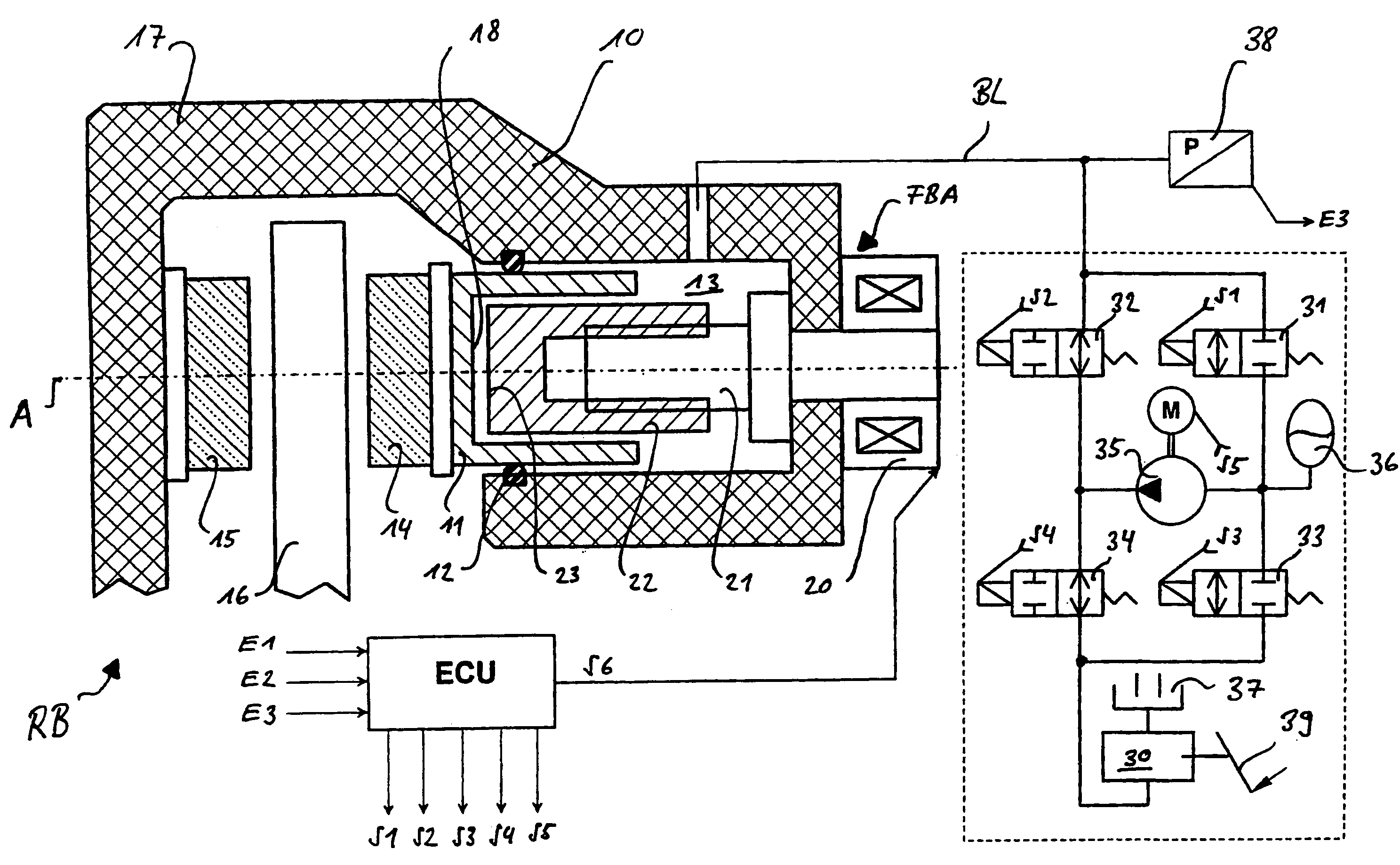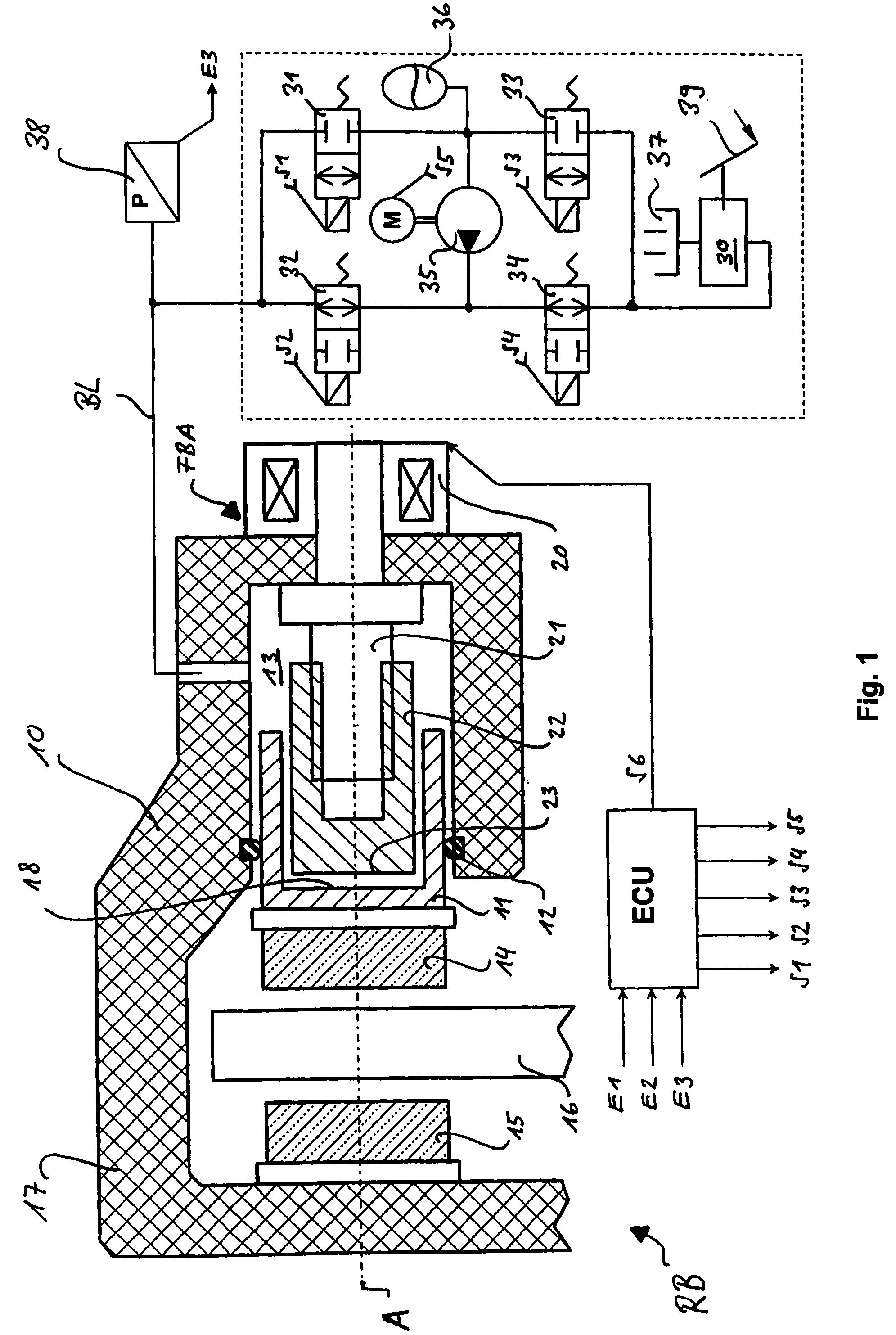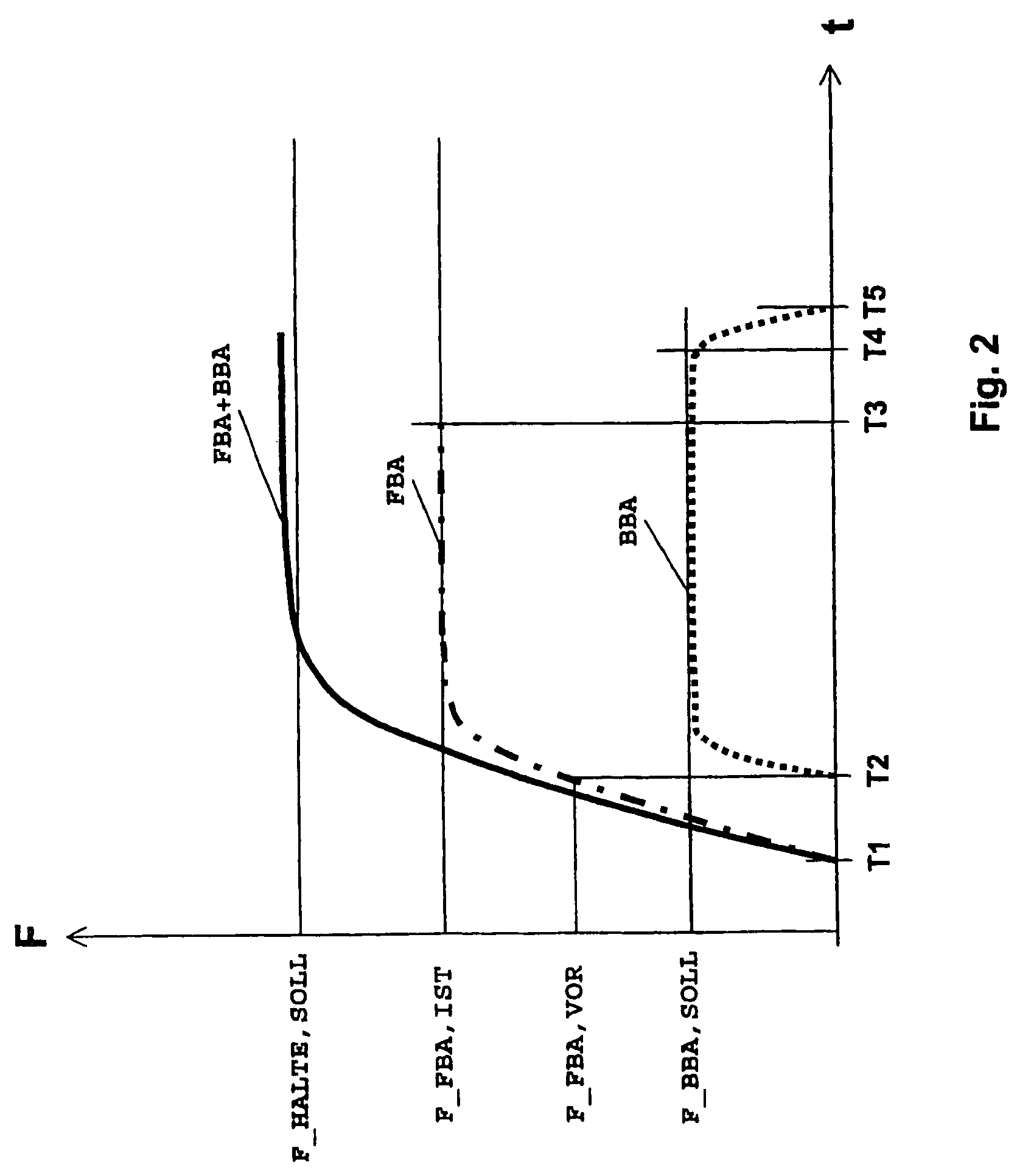Method for operating to brake gear of a vehicle
a technology for operating brakes and gears, which is applied in the direction of brake action initiation, brake systems, mechanical devices, etc., can solve the problems of significant increase in the cost of the brake arrangement and the complexity of the electrically-mechanical actuating unit, and achieve the effects of low power, low reduction/transmission ratio, and limited brake force to be generated by the parking brake system
- Summary
- Abstract
- Description
- Claims
- Application Information
AI Technical Summary
Benefits of technology
Problems solved by technology
Method used
Image
Examples
Embodiment Construction
[0027]FIG. 1 shows an exemplary embodiment of a brake arrangement, which can be operated according to the inventive process, for a wheel brake RB. The brake arrangement comprises a service brake arrangement BBA which acts hydraulically on a wheel brake RB by way of a brake line BL. A parking brake system FBA with an electromotive actuating unit is integrated in the wheel brake.
[0028]To control / regulate the service and parking brake system, a common electronic control unit ECU is provided, in which, or in the computer unit of which, the inventive process is preferably implemented as software. A person skilled in the art will understand that the service and parking brake system can also be controlled / regulated starting from separate electronic control units, which exchange data by way of a communications system, e.g. CAN-bus.
[0029]The wheel brake RB illustrated here in a longitudinal section with reference to its longitudinal axis A has a housing 10 in which a brake piston 11 is recei...
PUM
 Login to View More
Login to View More Abstract
Description
Claims
Application Information
 Login to View More
Login to View More - R&D
- Intellectual Property
- Life Sciences
- Materials
- Tech Scout
- Unparalleled Data Quality
- Higher Quality Content
- 60% Fewer Hallucinations
Browse by: Latest US Patents, China's latest patents, Technical Efficacy Thesaurus, Application Domain, Technology Topic, Popular Technical Reports.
© 2025 PatSnap. All rights reserved.Legal|Privacy policy|Modern Slavery Act Transparency Statement|Sitemap|About US| Contact US: help@patsnap.com



